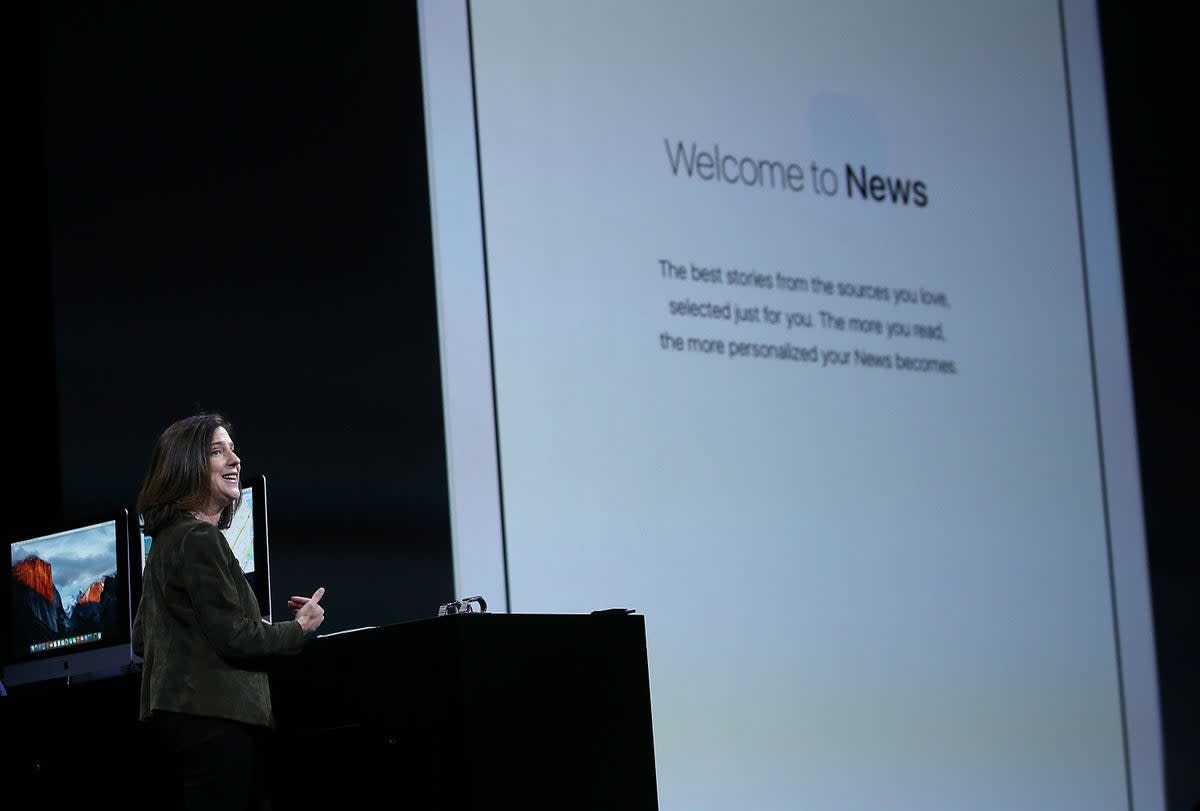Apple exec hails importance of having apps ‘built by everyone’ on App Store

Apple continues to be “very much focused” on inclusion and diversity, its head of developer relations has said, even amid concern about whether the technology industry is fair and just.
The company’s commitment to those values partly comes from a “really selfish and practical point of view that to build the best products for everyone, they have to be built by everyone”, Susan Prescott said during an event at Apple’s new offices in Battersea.
Apple’s worldwide vice president of developer relations said that the idea of increasing the participation of “historically underrepresented groups, including women, is super important to us” at the event, and pointed to a range of projects on the App Store and elsewhere that the company has launched in an attempt to support it.
Ms Prescott’s comments come ahead of Apple’s Worldwide Developers Conference, which will be held in June and bring software updates for all the company’s products. She promised that the event would include “new features, new capabilities, new ways to connect with Apple, new ways to get answers”.
But she was also speaking at a meeting of female founders who had recently gone through Apple’s “App Store Foundations” programme, which offers teaching and support to developers. Ms Prescott said the programme – alongside other schemes such as support with marketing and even new programming languages – was aimed at increasing diversity and inclusion on the App Store.
The App Store Foundations programme lets developers and founders undergo a tailored curriculum that teaches them both about technical issues that might come up with apps as well as the business challenges that apps might face. It consists of a four-week education process that brings together a cohort of designers, who are then supported once they have left the programme.
Apple has launched those initiatives amid increasing scrutiny over the power of the App Store by regulators across the world. Those officials have questioned whether Apple’s power as the only way to get apps onto the iPhone means that it is unable unfairly influence the apps that are available on the device, a position that has been backed by its critics including Fortnite developer Epic.
In response to that criticism, Apple has pointed to a range of programmes, including the Foundations courses but also broader initiatives such as its Small Business Program, which allows developers of smaller apps to receive a larger cut of the revenues generate from sales of their app on the App Store.
The founders who spoke to her during the event said that the tech industry more broadly continued to bring challenges that made it difficult for female founders to find success. They pointed to the difficulties with securing investment from venture capital firms, for instance, which continue to almost entirely fund companies run by men.
Ms Prescott said that “it's well talked about, the under representation of communities like women, tech, and software – but the VC side, we need someone to go take the leadership role” and increase the funding to female-led companies.
Many experts have raised concerns that the diversity and inclusion initiatives that have been launched in the tech industry could struggle in the months and years to come, given that many previously successful companies are now sacking staff and making other cuts.
But speakers at the event indicated they were positive about the future of women in technology. Jo Goodall, the co-founder of Luna – a health and fitness app for teenagers – said that experiences with young people had shown that it was increasing normal for young women to be interested in working in technology.
“I'm actually sort of quietly confident a positive for the future that actually it will be normal for girls to go into tech,” she said during the event.
Ms Goodall was one of a number of founders invited to Apple’s brand new campus at the refurbished Battersea Power Station to speak with Ms Prescott. She was joined by Margaret Zablocka, the founder and chief executive of baby tracking app Onoco, and Maud Millar and Sarah Elizabeth Peters, who together founded and run Adapt, a revision app.
Ms Prescott noted that all of those apps were “purpose driven” and “heartfelt”, and the kind of apps that showed the importance of ensuring that women were empowered to create and develop technology companies. Without that diversity, you can have “one perspective replicated over and over” and “you may not see some of the solutions”, she noted.
Ms Miller, from Adapt, said that she had initially worried about the fact that she and the other female founders in the room had developed apps that were focused on women, young girls and education. But she said that she had come to appreciate it as a strength.
“It's sort of more than there's whitespace in these things. Because no one's been trying to solve these problems for a really long time,” she said.
All of the founders present were from apps at the early stage of their development. The App Store Foundations programme focuses on such companies, with the company saying that it has so far supported more than 1,100 developers across Europe, who were chosen by teams in those countries who look for apps that might benefit.
But developers of such small apps have occasionally struggled on the App Store, which features nearly two million apps in total. The founders said they had been helped to cut through by other initiatives, including the editorial team that decides which apps will be focused on the App Store’s curated home pages.
“The editorial team have been great for me,” said Luna’s Ms Goodall. “It's the kind of exposure that we could never pay for – we could go nowhere near geting in front of that many people. But I think just having those moments on the App Store, really, really helps.”

